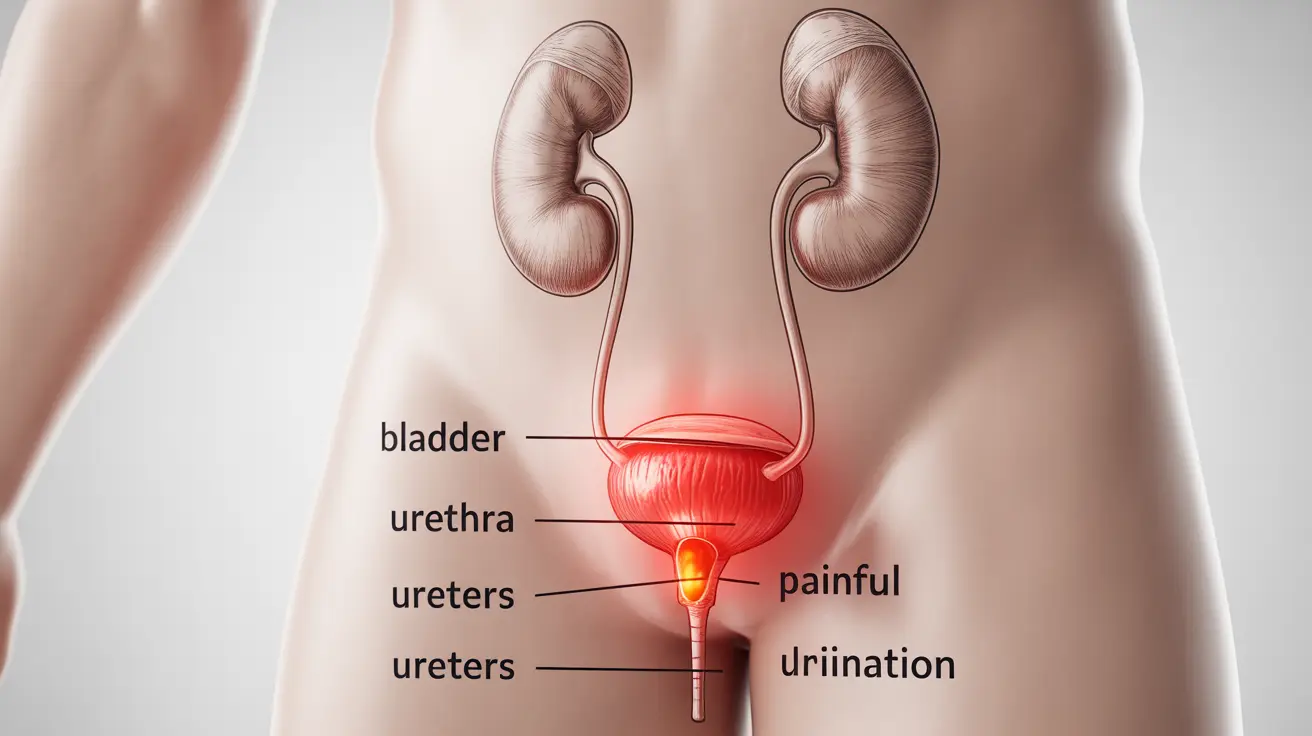Experiencing pain or burning during urination can be both uncomfortable and concerning. This symptom, medically known as dysuria, affects many people at some point in their lives and can stem from various underlying causes. Understanding why it hurts when you pee and knowing when to seek medical attention is crucial for maintaining urinary health.
While painful urination is often associated with infections, several other conditions can trigger this discomfort. This comprehensive guide will explore the main causes, treatment options, and preventive measures to help you better understand and address this common health concern.
Common Causes of Painful Urination
When you experience pain while urinating, several conditions might be responsible:
Urinary Tract Infections (UTIs)
UTIs are among the most frequent causes of painful urination, particularly in women. These infections occur when bacteria enter the urinary tract, causing inflammation and discomfort. Besides pain, UTIs often present with increased urinary frequency, urgency, and cloudy or strong-smelling urine.
Sexually Transmitted Infections
Several STIs can cause pain during urination, including:
- Chlamydia
- Gonorrhea
- Herpes
- Trichomoniasis
Other Common Causes
Additional factors that may lead to painful urination include:
- Kidney stones
- Bladder inflammation (cystitis)
- Vaginal infections or inflammation
- Prostate problems in men
- Chemical irritants from soaps or hygiene products
Treatment Options and Medical Care
Medical Treatments
The appropriate treatment depends on the underlying cause:
- Antibiotics for bacterial infections
- Antiviral medications for viral infections
- Anti-inflammatory drugs for inflammation
- Specialized treatments for specific conditions
Home Remedies and Self-Care
Several self-care measures can help alleviate discomfort:
- Drinking plenty of water
- Using over-the-counter pain relievers
- Avoiding irritating products
- Taking warm baths
- Using a heating pad on the lower abdomen
Prevention Strategies
To reduce the risk of developing painful urination:
- Practice good hygiene
- Stay well-hydrated
- Urinate after sexual activity
- Wear breathable cotton underwear
- Avoid holding urine for long periods
- Use gentle, unscented personal care products
When to See a Doctor
Seek medical attention if you experience:
- Severe pain or burning during urination
- Blood in urine
- Fever or chills
- Back pain near the kidneys
- Persistent symptoms lasting more than a few days
- Discharge from the genitals
Frequently Asked Questions
Why does it hurt when I pee and what are the most common causes of painful urination?
Pain during urination most commonly results from urinary tract infections (UTIs), sexually transmitted infections, inflammation, or irritation of the urinary tract. The pain may feel like burning, stinging, or general discomfort and can be caused by infection, inflammation, or reaction to irritants.
How can urinary tract infections (UTIs) lead to pain during urination and how are they treated?
UTIs cause pain by inflaming the urinary tract lining. Bacteria irritate these tissues, leading to burning sensations during urination. Treatment typically involves a course of antibiotics, increased fluid intake, and sometimes pain relievers. Most UTIs clear up within a few days of starting antibiotics.
Could sexually transmitted infections (STIs) cause pain when urinating and how can they be diagnosed?
Yes, several STIs can cause painful urination. Diagnosis involves physical examination and laboratory tests, including urine samples and swabs. Common STIs causing urinary pain include chlamydia, gonorrhea, and herpes. Early detection and treatment are crucial for preventing complications.
What home remedies or lifestyle changes help relieve burning or discomfort when peeing?
Effective home remedies include drinking plenty of water, using over-the-counter pain relievers, avoiding irritating substances, and applying warm compresses. Lifestyle changes such as proper hygiene, wearing breathable clothing, and staying hydrated can help prevent recurring issues.
When should I see a doctor if I have pain while urinating or other urinary symptoms?
Consult a healthcare provider if you experience severe pain, symptoms lasting more than a few days, fever, blood in urine, back pain, or unusual discharge. These could indicate a serious condition requiring immediate medical attention. Also seek care if over-the-counter remedies don't provide relief.




